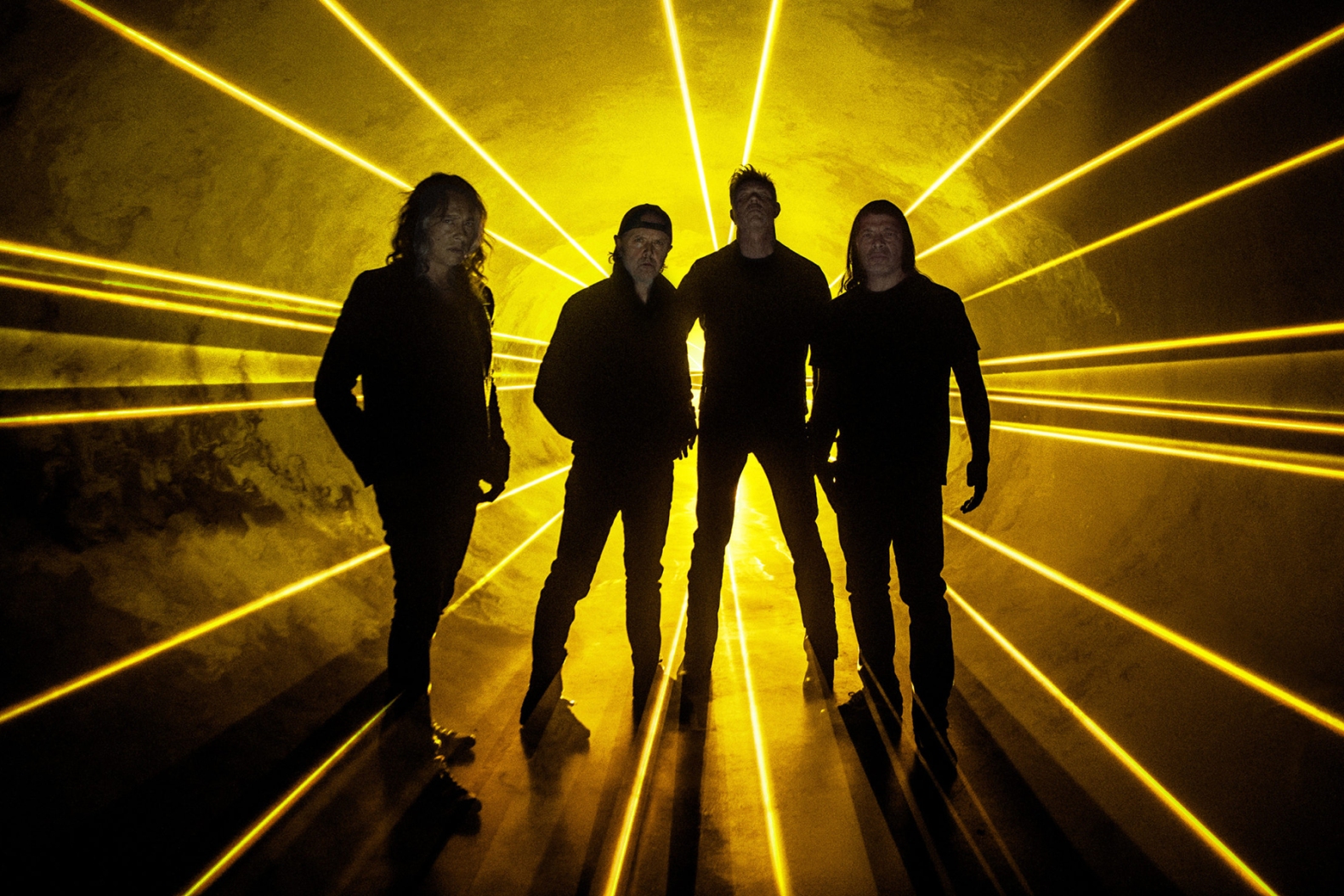★★★☆☆
Metallica became the biggest band in heavy metal by constantly pushing against what their own genre was doing. While the early-‘80s thrash scene was battling to see who was the fastest, San Francisco’s eight-legged behemoth slowed down and made stompers like ‘For Whom the Bell Tolls’.
When the singalongs of glam dominated later that decade, they countered with such titanic suites as ‘Master of Puppets’ and ‘One’. Then, in the ultimate act of rebellion, they told their own complexities to do one, released the super-simple Black Album in 1991 and became millionaires almost immediately.
Since then though, derided experiments like St Anger and Lulu have seen the Four Horsemen agitate infinitely more than they’ve intrigued. The band answered the backlash by composing no-nonsense heavy metal and letting their business practices game-change for them.

Photo: Tim Saccenti
As a result, 72 Seasons is being promoted by a week-long Jimmy Kimmel residency and a ‘worldwide listening party’ in international cinemas, but the album itself is the sound of Metallica strengthening the box they’ve sealed themselves in.
To be fair to them, Metallica have never hidden this album’s genre-loyal mission statement. Its title is a reference to those formative first 18 years of life and how they shape your entire adulthood.
Singer-guitarist James Hetfield and drummer Lars Ulrich both spent much of that time fawning over the white-knuckle all-caps METAL of Motörhead and Venom, before bonding over that passion and forming Metallica. Lead single ‘Lux Æterna’ made 72 Seasons’ affinity for those influences tangible, with its no-filler runtime, thrash metal pace and howls of “Full speed or nothing!”
If the album proper were 45 minutes or so of that, then this review would come bundled with an extra star at the top of it. It could have been the doubling-down on debut album Kill ‘Em All that we never got – on its 40th anniversary, no less – since follow-up Ride the Lightning quickly pushed Metallica into more dynamic and well-polished places.
However, ‘Lux Æterna’ is the most concise and high-octane cut here. It’s also merely three of 72 Seasons’ 77 minutes. The remaining 74 are more deliberate and drawn-out.
That isn’t to say this album fails. Every song carries a brilliant idea at its heart, be it a guitar part, drum beat or vocal melody. The opening title track excitingly builds its main riff around clamouring cymbals and rumbling bass, then ‘Shadows Follow’ is a shot of Black Album-ey groove with a mid-paced snare that’ll get necks snapping. Later, ‘You Must Burn!’ hammers home its occult-like, Black Sabbath-esque march with a call of “Who’s the next witch? You must burn!” that won’t leave your head for quite some time.
The problems arise when Metallica expect these ideas to individually sustain seven-minute songs. A classic like ‘Master of Puppets’ earned that length by weaving between hulking metal, neoclassical harmonising, solos, and chants that can unite arenas, all in one swipe. Compare that with ‘If Darkness Had a Son’, which struggles to sustain its first half by repeating the same riff ad nauseam, or the fact that ‘Inamorata’ could lose five minutes and still fit in all of its parts.
Of course, Metallica don’t need to make the next Master of Puppets this late in the game. They know the money’s out on the road (hence their half-decade gaps between albums), and the next tour will see them try something new once again when they play two shows at every stop they make.
However, the tragedy of 72 Seasons is that it’s Metallica playing sometimes featureless heavy metal, when what made this band matter was rejecting how trends demanded they should sound.





